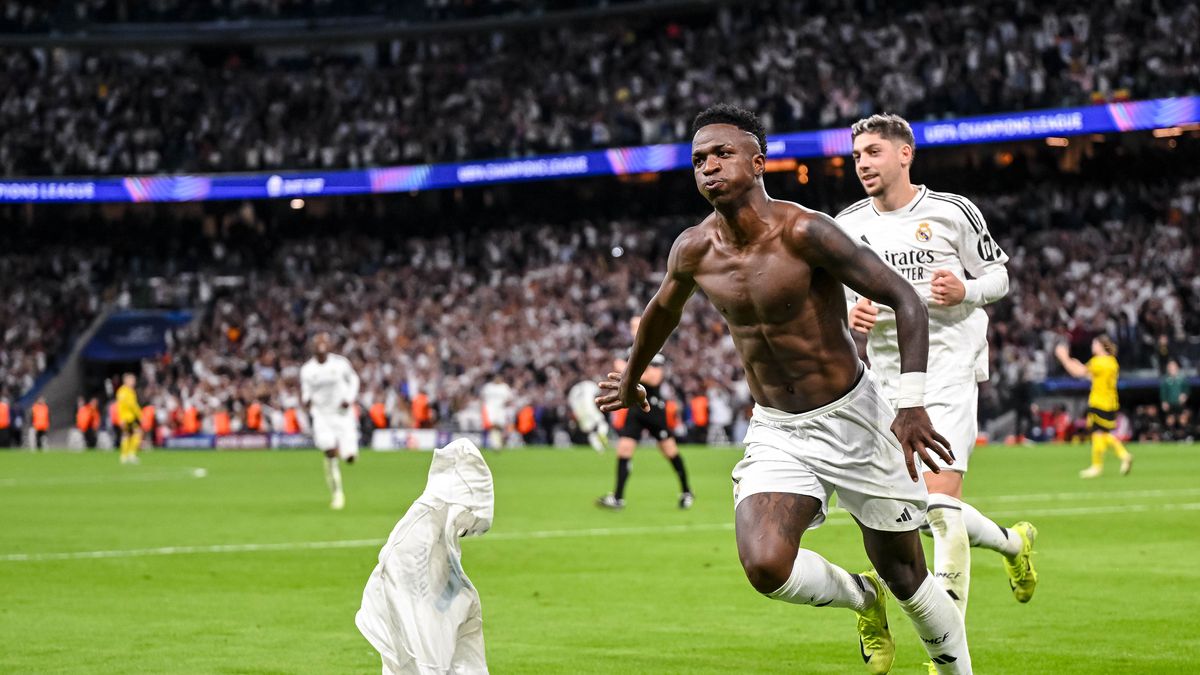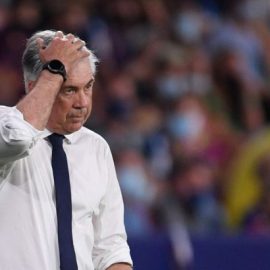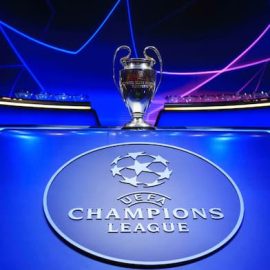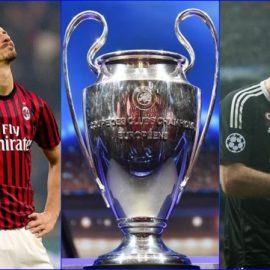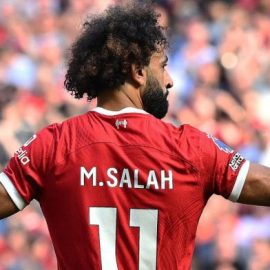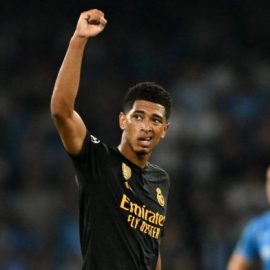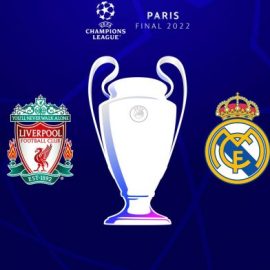Soccerlens looks at the 2009/2010 Champions League season, from the format changes to the upsets, sublime attacking performances and their masterful tactical counterbalances, and of course, destiny.
Qualification
For the first time in the competition’s history the qualifying rounds were divided in to two distinct sections: The Champions Path, for those who won their domestic league but didn’t automatically qualify for European competition, and The Non-Champions Path, which unsurprisingly contains those teams who did not win their own league.
Olympiacos made their way leisurely through the Champions Path, dispatching the brilliantly named Sheriff Tiraspol along the way. The whereabotus of Deputy Tiraspol are as yet unknown.
Their rivals Panathanaikos were among the highest profile casualties from the qualifying stage, crashing out after a tough draw against Atletico Madrid. Sporting CP went out to Fiorentina on away goals, whilst in an all British affair, Arsene Wenger’s Arsenal ensured their presence in the group stage with a thumping victory over Celtic. It was a bad start to what would prove to be a disastrous season for Tony Mowbray. Deposed French Champions Lyon kept up their run of consecutive Champions League appearances with a crushing victory over Belgium’s Anderlecht.
The Group Stages
The group stage is often lambasted for being a predictable affair designed to churn the same old teams in to the knock-out phase. This year, however, there were a few results to raise continental eyebrows – starting in Group A, where a 4-1 victory for Bayern Munich in Turin saw Juventus tumble in to the Europa League. It was a result which spared Louis Van Gaal the sack, and was one of the first nails in the coffin of Ciro Ferrara’s Juve reign. Maccabi Haifa were the group’s whipping boys, losing all six fixtures, whilst French Champions Bordeaux swaggered impressively through as group winners.
Group B saw qualification for last year’s finalists Manchester United and CSKA Moscow, who were only denied an impressive victory at Old Trafford by a 92nd-minute Antonio Valencia equaliser. CSKA beat German Champions Wolfsburg to second place – whilst the strike partnership of Brazilian Grafite and Bosnian Edin Dzeko impressed, a costly home defeat at the hands of a Michael Owen hatrick ended any realistic hopes of qualification Wolfsburg might have had. Besiktas won just one of their six games, and unsurprisingly finished the group bottom.
Real Madrid were primed and focused for their first crack at the European Cup since the return of Florentino Perez, and despite a 3-2 home defeat to Leonardo’s AC Milan, finished comfortably as group winners. Milan came second in a star-studded group, with Marseille, who’d later emerge as French Champions, and FC Zurich trailing behind.
Having qualified so impressively, Atletico Madrid went on to do what they do best: dramatically disappoint. They failed to win a single game, with only their superior results against the similarly poor APOEL qualifying them for third place in Group D and a spot in the Europa League – a competition they’d eventually win. Two of Jose Mourinho’s former clubs, Porto and Chelsea, took advantage of Madrid’s malaise to finish in the top two.
Group E provided a further manifestation of Liverpool’s nightmarish decline as they failed to reach the latter stages, denying the Kop their conventional ‘great European nights’. Two dramatic home defeats to Lyon and Fiorentina, both to stoppage time goals and a 2-1 scoreline, sealed their fate. The Italian and French teams qualified in Liverpool’s stead, with Debrecen propping up Scouse pride by finishing in fourth.
Group F was almost turned on its head by Russian Champions Rubin Kazan, who pulled off a shock 2-0 win at the home of holders Barcelona. In the end, however, the Catalans edged through, along with Mourinho and his Inter, whose rotten luck in Europe finally began to turn as they snuck through with just two wins from their six games. Kazan were eliminated, along with former powerhouse Dynamo Kiev.
Sevilla were, on paper, by far the strongest side in Group G. There were few surprises, as the Spaniards romped through, thumping Rangers 4-1 at Ibrox along the way. The Scottish Champions enjoyed the financial relief provided by the group stages, but couldn’t take advantage of any bonus rounds, finishing bottom of the group. Unirea Urziceni won by the same scoreline in Scotland, but a costly 1-1 home draw in the return tie saw them miss out on qualification to a Christian Gross-revived Stuttgart.
Arsenal came through a relatively safe passage in Group H to qualify as group winners. Their toughest test arrived in their first game, when some characteristic defensive calamities saw them 2-0 down away to Standard Liege after just 5 minutes. A spirited 3-2 comeback proved the catalyst to their qualification, and they were joined by a defensively solid Olympiacos, with Liege and Dutch champions AZ slipping out of contention.
Second Round
Eight groups produced eight mouth-watering second round ties. The headline stories were the exit of two European super-powers, though perhaps both ought not to have come as such surprises. Real Madrid’s Champions League form has been dreadful in recent years, but even so their exit to Lyon came as a shock. This 2-1 aggregate defeat, as much as their failure to wrest the La Liga title from Barcelona, is what will be cited as the cause for Manuel Pellegrini’s inevitable sacking. The likes of Cristiano Ronaldo, a finalist just a year before, were destined to be denied the chance of contesting a European final on home turf.
Chelsea were one of the favourites to win the competition, what with having been finalists two years before and having since added Carlo Ancelotti, a coach with proven Champions League winning credentials. However, they came up against former Chelsea hero and nemesis of Ancelotti, Jose Mourinho and his Inter Milan side. The prospect of facing his former club galvanised Mourinho and his team, and they produced a tactical masterclass to win the tie 3-1.
Manchester United thumped AC Milan 7-2 on aggregate, and the second leg was more memorable for David Beckham’s return to Old Trafford than for United’s 4-0 win, which came with an embarrassing ease.
Bayern Munich edged past Fiorentina on away goals, but the tie was marred with controversy as a Miroslav Klose goal in the first-leg was allowed to stand despite the striker being clearly offside. Bayern’s German compatriots, Stuttgart, held Barcelona to a 1-1 draw in the first leg of their tie, but any optimism was quickly extinguished by a 4-0 drubbing in the second leg.
There was a similar turnaround between Porto and Arsenal. Two horrendous Lukasz Fabianski mistakes saw the Portugese side take a 2-1 lead to the Emirates Stadium, but a rampant Arsenal racked up five goals to render their initial defeat irrelevant.
Elsewhere, a dreadful mistake from Sevilla goalkeeper Andres Palop saw the Andalucians go out to CSKA Moscow. The normally reliable stopper punched a tame 30-yard free-kick in to his own net, simultaneously sending the Russians through at his own team’s expense. Bordeaux, meanwhile, continued their serene progress with a comfortable win over Olympiacos.
The Quarterfinals
In recent years, the Champions League has been dominated by financially-doped English teams. By the Quarter-Final stage, Liverpool and Chelsea were out, leaving United and Arsenal holding the British baton. Their positions on opposite sides of the draw meant that another all-English final, just as in 2008, was on the cards.
Not, however, for long. Man U’s tie with Bayern coincided not only with the German side hitting their best form in years, but also with an injury to talismanic striker Wayne Rooney. A topsy-turvy tie was eventually decided by a finish of exquisite brilliance from Dutchman Arjen Robben, who expertly volleyed a lofted corner in to the net from the edge of the area.
Arsenal, meanwhile, came up against the team in possession of not only the European Cup but also the continent’s best footballer, Lionel Messi. Messi was relatively quiet in the London-based first leg, but Barca were scintillating, and only some goalkeeping heroics from Manuel Almunia kept the tie competitive. A late Arsenal rally meant the game ending at 2-2, but Barca were less lenient at the Nou Camp. After an early scare when Nicklas Bendtner gave Arsenal the lead, Messi took centre-stage with an outstanding four-goal match-winning display.
Both English sides were out, but France were guaranteed a club in the semi-finals after Bordeaux were pitted against domestic rivals Lyon. A 3-1 victory in the first leg proved enough for Lyon, as Bordeaux failed to add to Marouane Chamakh’s towering header in their second meeting.
Inter, meanwhile, progressed in quintessential Mourinho fashion with two 1-0 wins. In the semis they were due to come up against Barca in what many neutrals had wanted as their final.
The Semis
Inter vs Barca was a clash of personalities, philosophies, and two of European footballs biggest clubs. The mesmeric entertainers of Josep Guardiola’s Catalan team faced off against the well-drilled soldiers of Mourinho’s Milanese. An irresistible force thrown against an immovable object. Even so, such had been the devastating form of Barca against Arsenal that many pundits expected them to dispatch Inter with a similar swagger.
Not so. Inter’s hard-hitting counter-attacking style caught Barcelona off-guard, and the Italians notched an impressive 3-1 win in the first leg. The Barca-backing pundits began to quietly sweat, but reassured their various audiences that all would be put right at the Nou Camp.
Not so. Despite going down to ten men after Sergio Busquets’ overreaction saw Thiago Motta red-carded, Inter produced a memorable rear-guard action to hold Barca to just the one goal and ensure their progression to the final. Once again, El Traductor had returned to haunt his former club.
The other semi-final pitted Louis Van Gaal’s Bayern against French Champions League regulars Lyon. The attacking force of the German side proved too much for Lyon, with a 4-0 aggregate scoreline underlining the difference in quality.
The Final
And so to the final: Bayern vs. Inter. The sorcerer pitted against his apprentice. After the late Sir Bobby Robson had been moved upstairs to become Director of Football at Barcelona, Mourinho had become Van Gaal’s third-ranked assistant in their shared time in the Catalan capital. When asked in the build-up to the game if Mourinho was the best coach of his generation, Van Gaal quipped that the Portugese was – principally because Van Gaal himself was a decade older.
Although Mourinho claimed he learnt plenty from his Dutch master, it wasn’t immediately obvious in his tactics. Bayern are a side laden with attacking talent – defensively vulnerable, but offensively thrilling. Inter are built on the model of efficiency over entertainment that Mourinho developed at Porto and then Chelsea.
Having each won a domestic double before the final, both sides were chasing an unprecedented treble. Inter’s tough route to the final and Mourinho’s cold-blooded nature made the Italians the bookies’ favourites, but football connoisseurs (including Arsene Wenger) plumped for the supreme artillery of Bayern.
In the event, the bookies, as so often, proved triumphant. In a pulsating final, Diego Milito scored with two of the most clinical finishes you’ll see to end the match and the tournament with Mourinho on top. This time, the Portugese’s celebrations were not muted – he shed tears of joy as Inter ended their half-century wait for Europe’s biggest prize.
Mourinho had made his mark on the Bernabeu, and the people of Madrid cheered as if he was one of their own. In all probability, he soon will be. Bring the big cup to Real, and The Special One will be the greatest Galactico of them all.
Soccerlens 09/10 Review:
Premier League Review
Bundesliga Review
Europa League Review
Serie A Review
La Liga Review
Add Sportslens to your Google News Feed!
